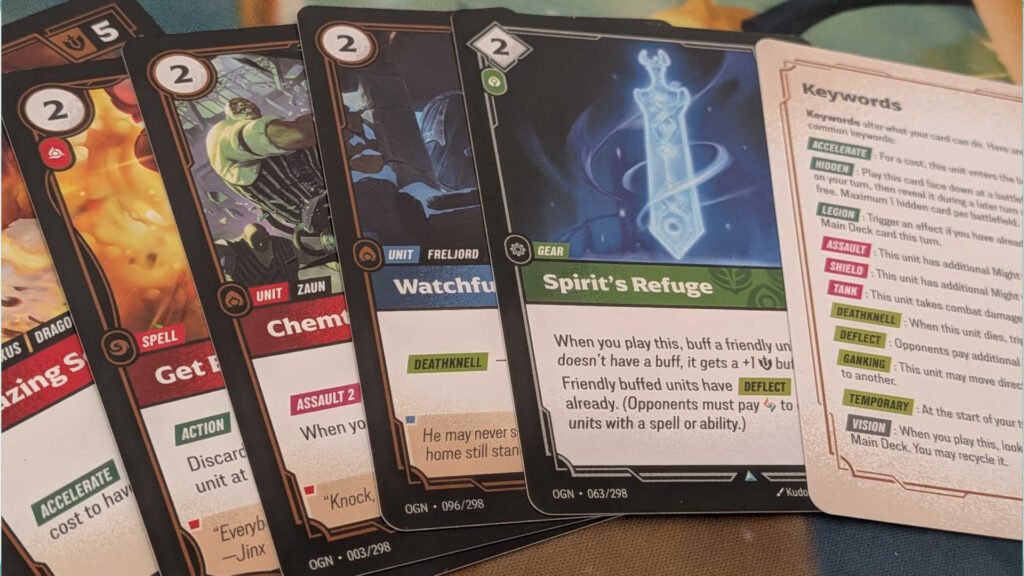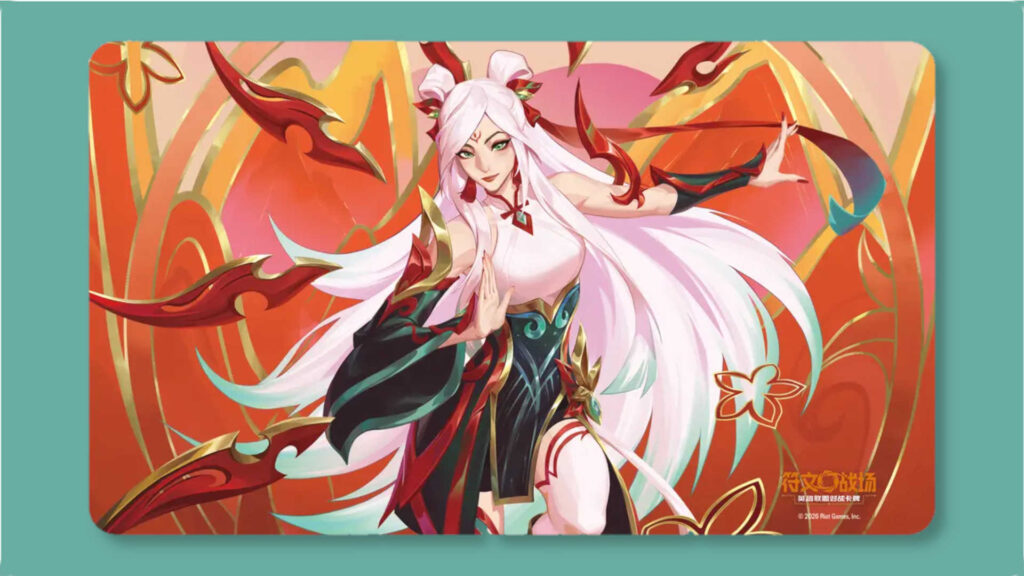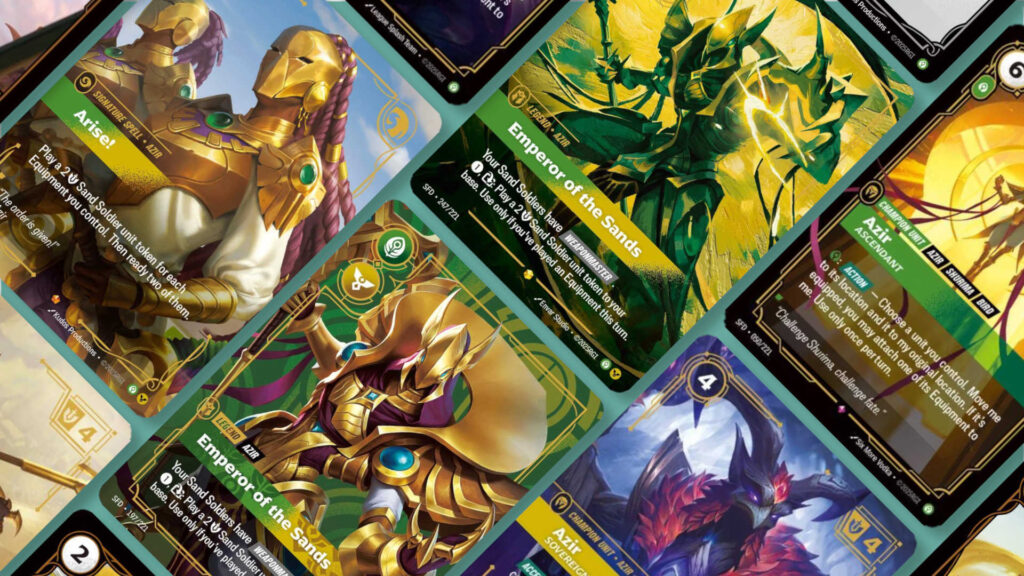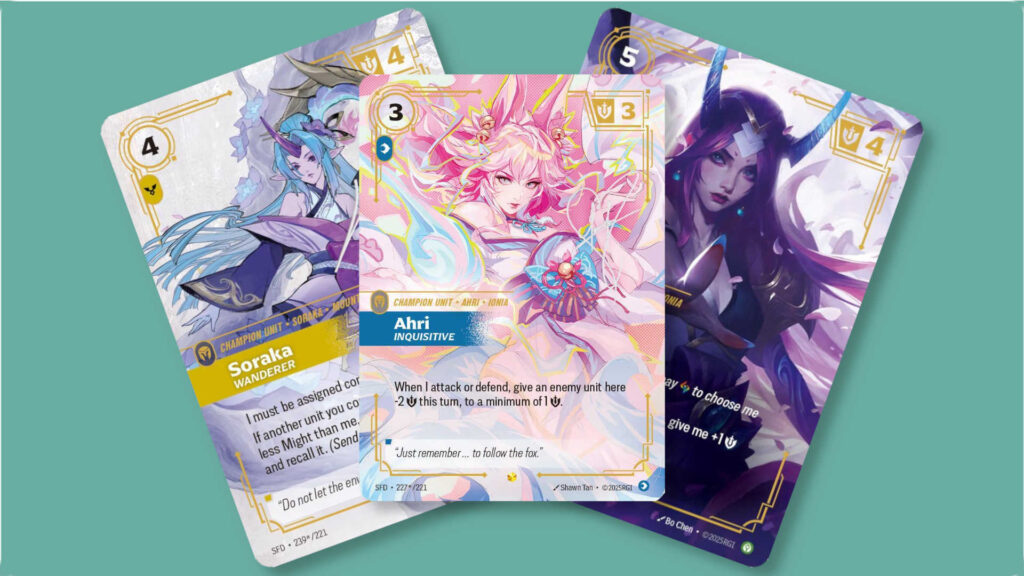We’ve all been there; a new trading card game is launched, and we’re deep into our first few games when a keyword pops up on a card and we have no idea how it works. Of course, new League of Legends trading card game, Riftbound, is no different, introducing plenty of new keywords in its debut set, Origins. Though of course these are explained in the Core Rules, it helps to have a guide to hand covering each of them in plain, easy to understand language. So let’s take a look at all keywords in Riftbound: Origins, in alphabetical order.
Table of Contents
ToggleAccelerate
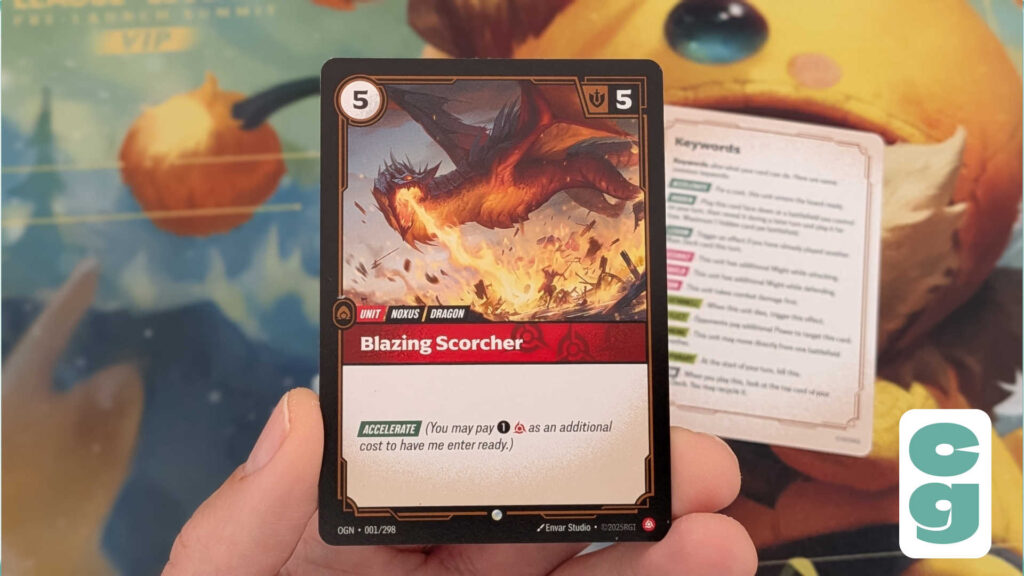
If a card has the Accelerate keyword, it can enter the play area ready for an extra cost. The extra cost will always be detailed on the card. For example, looking at Blazing Scorcher above, you can see that you’ll need to pay 1 Rune and recycle a Fury Rune in order for the card to enter play in its ready state. You can check out recycling in our specific guide to how recycling works, to clear up any confusion on that.
Action
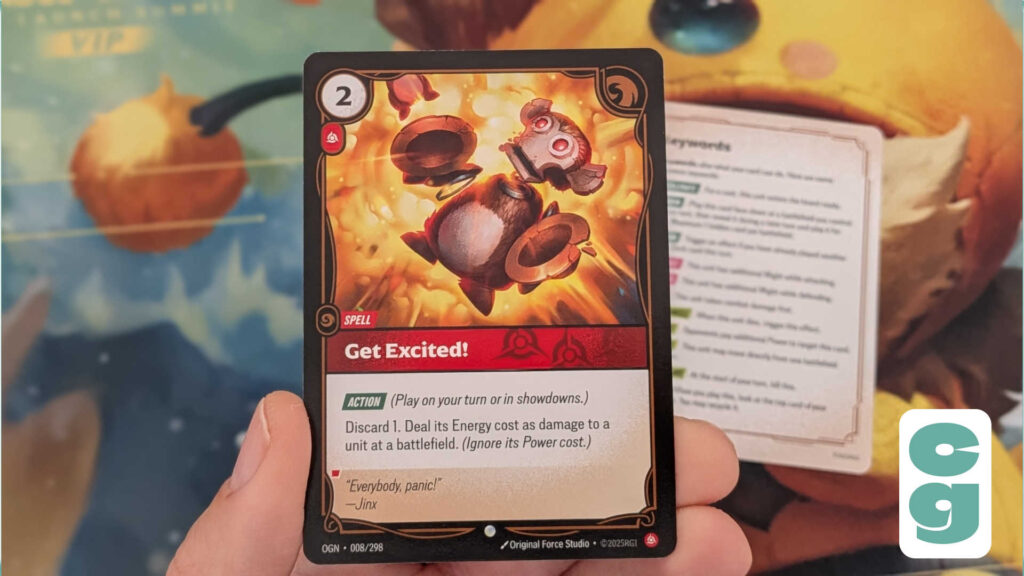
The Action keyword allows a card to be played or activated during Showdowns; importantly, it can also apply even if it isn’t your turn. Or course, you’ll still need to pay any associated Rune costs, but it’s a hugely important keyword as it can give you the upper hand, or at least a stronger defense, when your opponent is on the offensive. The effect will differ based on what card you’re using, and you don’t have to use the card in a Showdown (see the example of the Get Excited! card above), but you do have that option with the Action keyword.
Assault
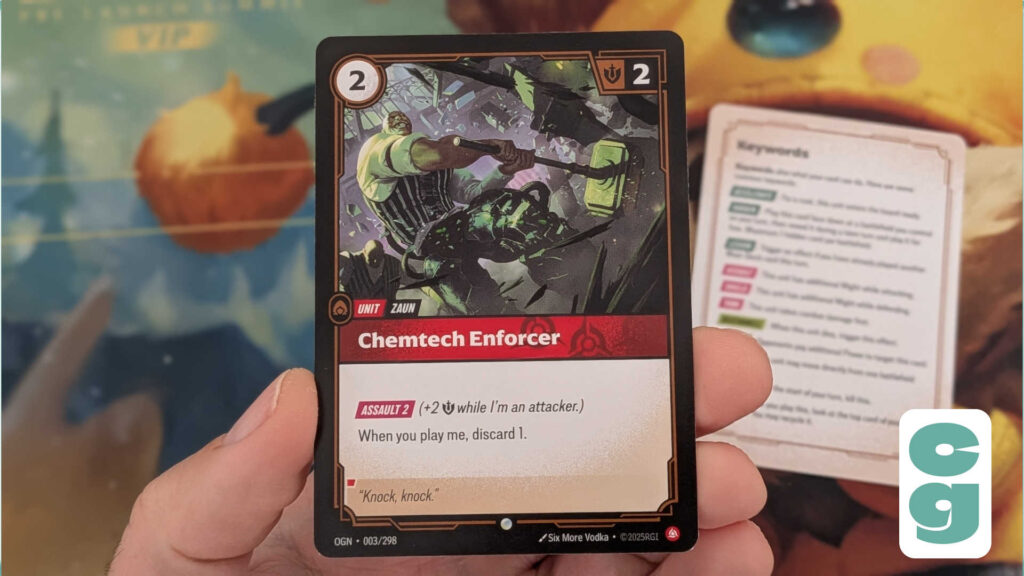
Speaking of offensive maneuvers, Assault gives a card extra Might, though only when attacking. A number will be associated with the Assault value on a card, which is the amount of extra Might it receives when attacking. Chemtech Enforcer above has Assault 2, for example, which means it gains +2 Might when attacking.
Deathknell
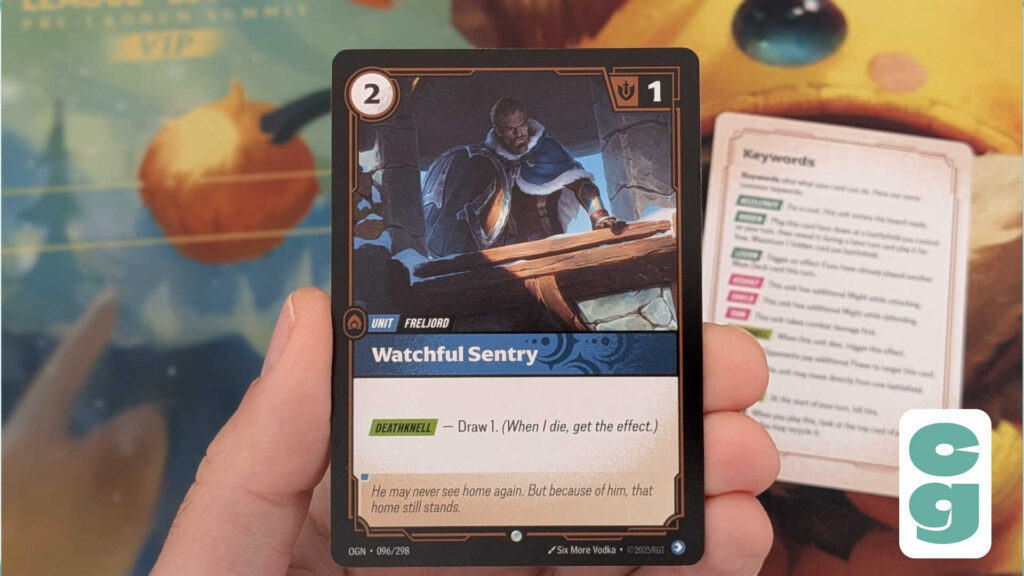
With Deathknell, the card’s ability is triggered when the card is killed, and then sent to the trash. Importantly, the effect does not trigger if the card is removed for any other reason than being killed. Watchful Sentry, above, allows its owner to draw 1 card when it is killed.
Deflect
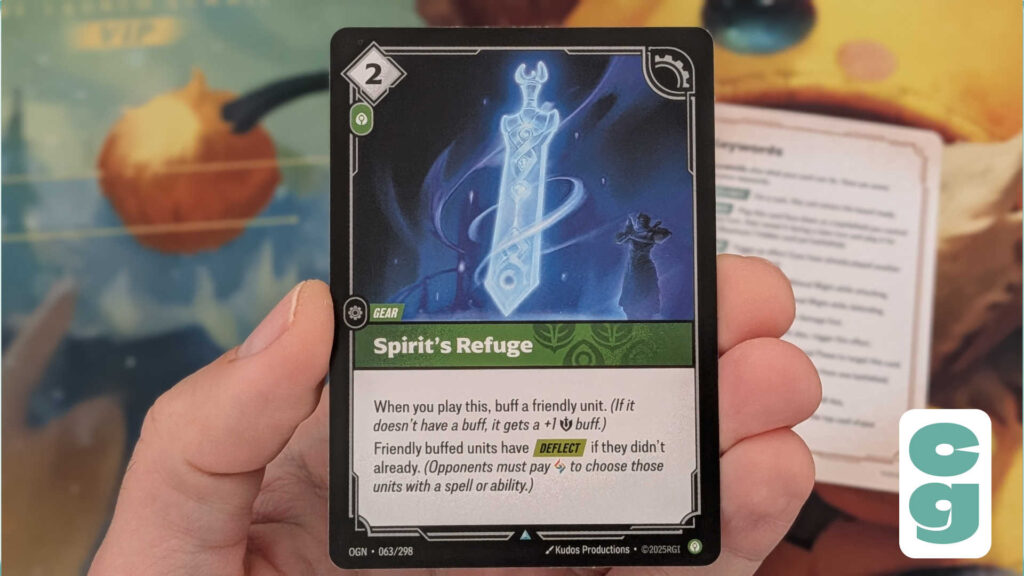
A card with Deflect gets a special defensive bonus; if targeted by a spell or ability, the player targeting them must pay or recycle extra Rune(s) as a cost, and they cannot target the card with Deflect if they’re unwilling or unable to pay the extra cost. Like Assault, Deflect may have a value; for example, Deflect 2 means the player attempting to target the card would have to pay 2 Runes (of any color) in order to continue with the effect or ability. With no value specified, such as with the Spirit’s Refuge card above where a symbol is present instead, the opponent must recycle 1 Rune (of any color) to target any card it gives Deflect to.
Ganking
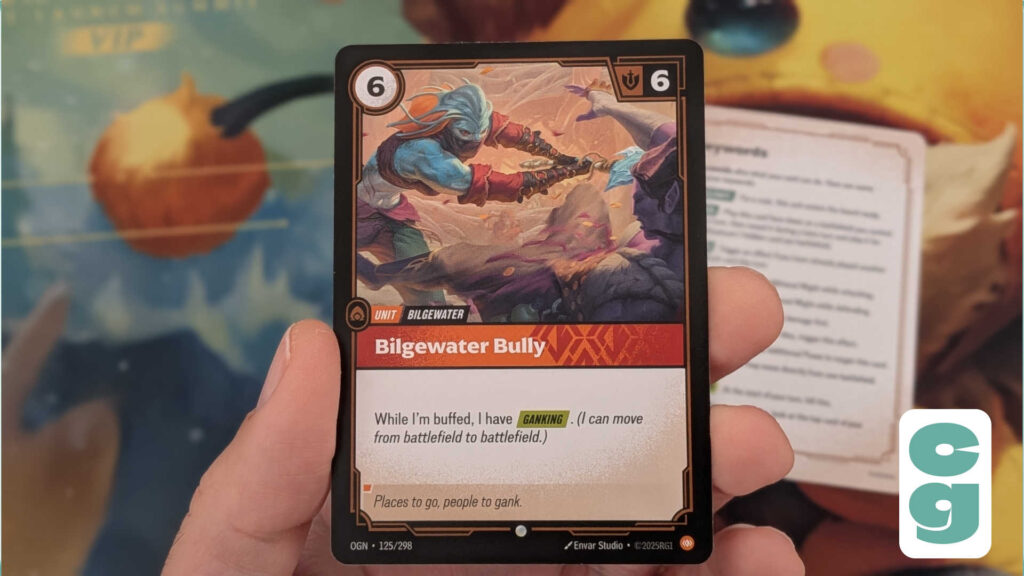
A pretty straightforward keyword, Ganking allows a card to move from battlefield to battlefield. Normally, a card may only move from battlefield to base or vice versa, but Ganking allows movement from battlefield to battlefield without the need to return to base first.
Hidden
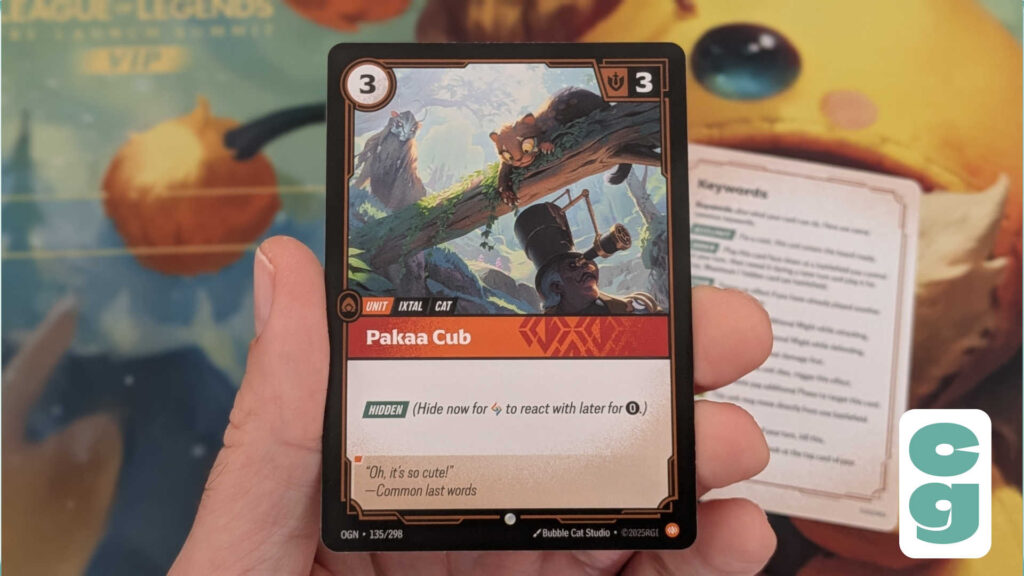
A card with the Hidden keyword can be played facedown, as long as the specified cost is paid when playing it. For example, with Pakaa Cub, pictured above, the player will need to pay the cost of 1 recycled Rune of any color, in addition to the card’s standard cost of 3, in order to play it facedown. It then gains the Reaction keyword, and can be played for a cost of 0 as a Reaction (see our Reaction section for more on that), unless the cost is specified as higher.
Legion
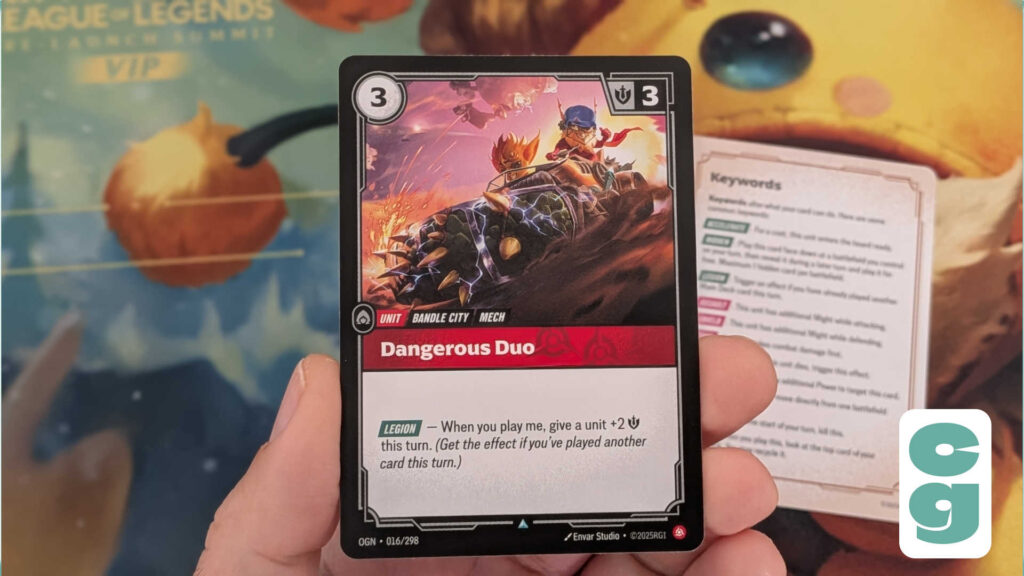
Cards with Legion get a bonus as long as you’ve played another card this turn. Note that this doesn’t apply to Runes; it must instead be a card from your main deck, such as a unit or spell, and it must be played, not triggered or entering play through other means. If you play a Legion card before any other card on your turn, its effect won’t trigger. The Dangerous Duo card above, for example, gives another unit card +2 Might for the rest of the turn but only if it’s played second or later during your turn.
Mighty
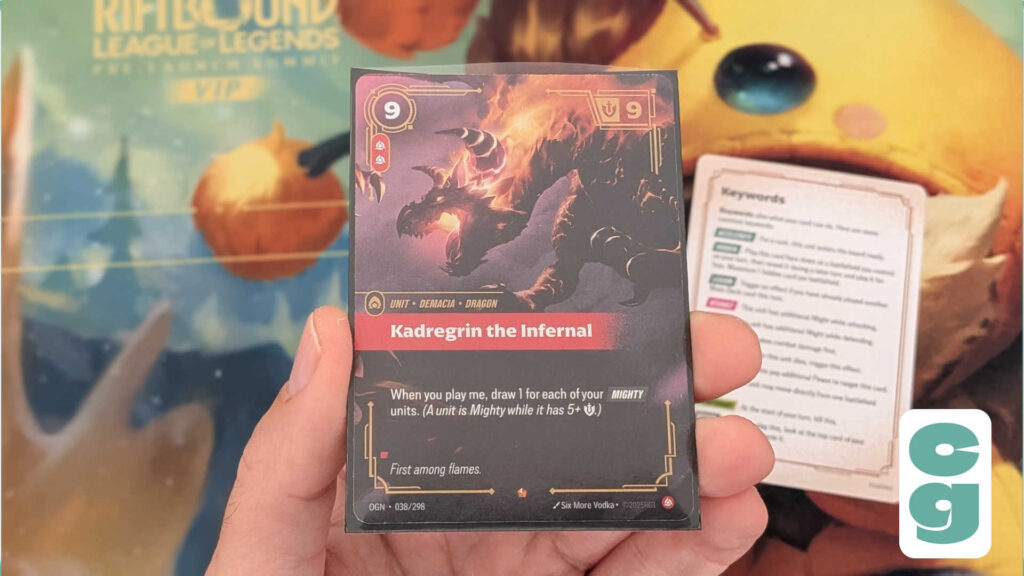
An interesting keyword, Mighty refers to a unit which has +5 Might at any point (even if temporarily; though it ceases to be a Mighty unit when its might is less than 5). Cards such as Kadregin the Infernal is Mighty itself, but also gains a bonus effect from other Mighty units when played.
Reaction
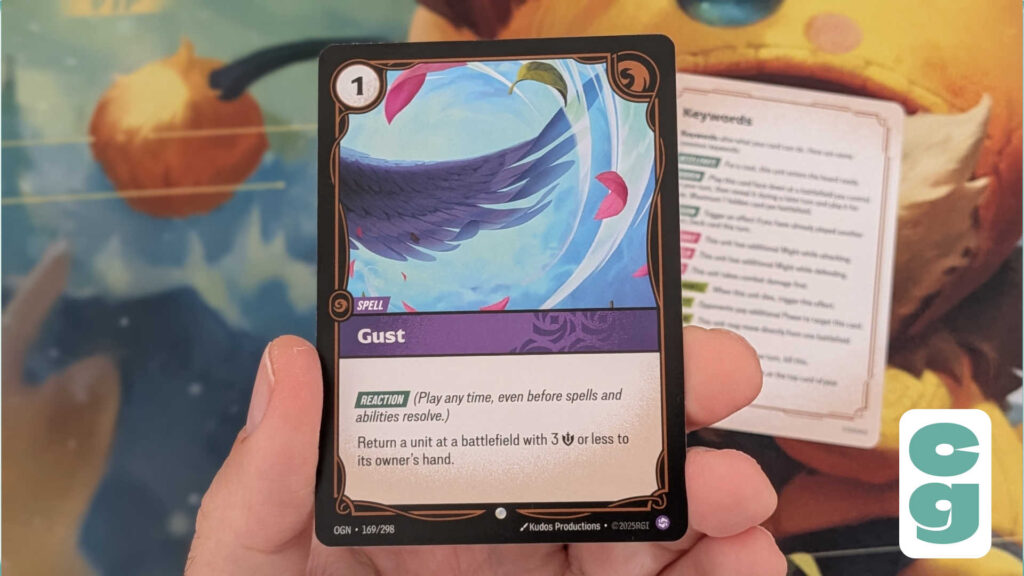
A card with Reaction can be played at any time, even on another player’s turn. For example, it can be played before an effect is resolved; Gust, shown above, can return a unit from a battlefield to its owner’s hand even during a Showdown, and before that unit deals any damage!
Shield
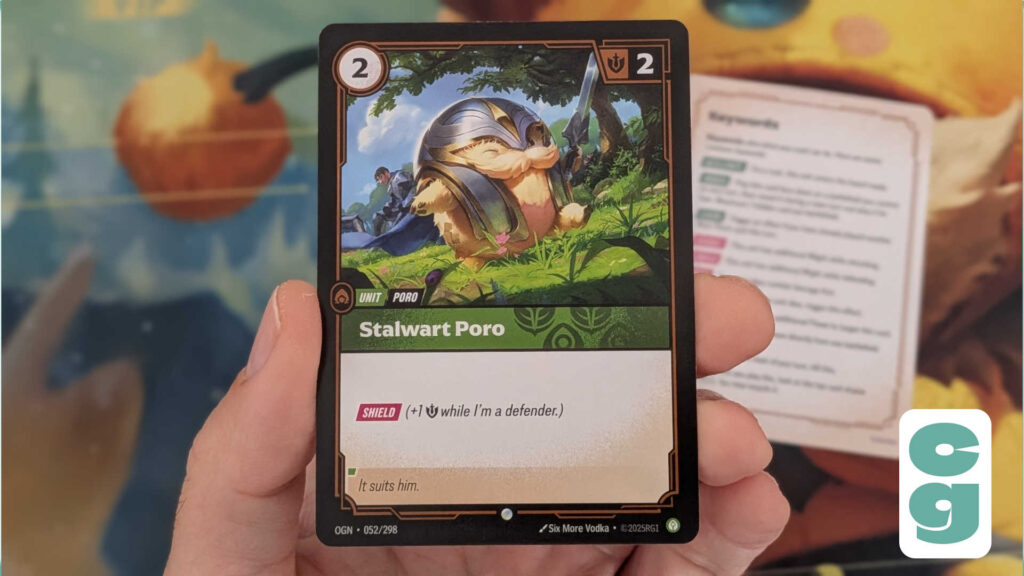
Another keyword that’ll usually be accompanied by a value, Shield gives a player extra Might when defending. So for example, a card with Shield and no value, such as the above Stalwart Poro, will get +1 Might when defending. If a card had Shield 2, it’d have a +2 Might bonus while defending.
Tank
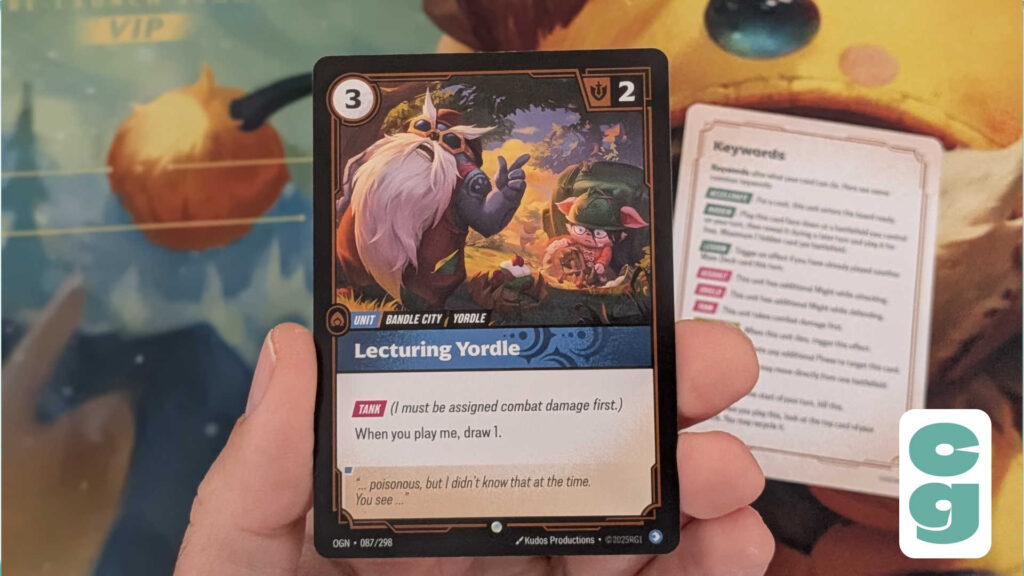
A unit with Tank is assigned damage during combat, before any other units. If a defender has multiple Tank units, the attacker can choose which unit(s) receive the damage, but must assign lethal damage (that is, a Tank unit must be killed) before moving to the next Tank. The attacker must assign lethal damage to all Tank units present on the defending side before they can move onto non-Tank units.
Temporary
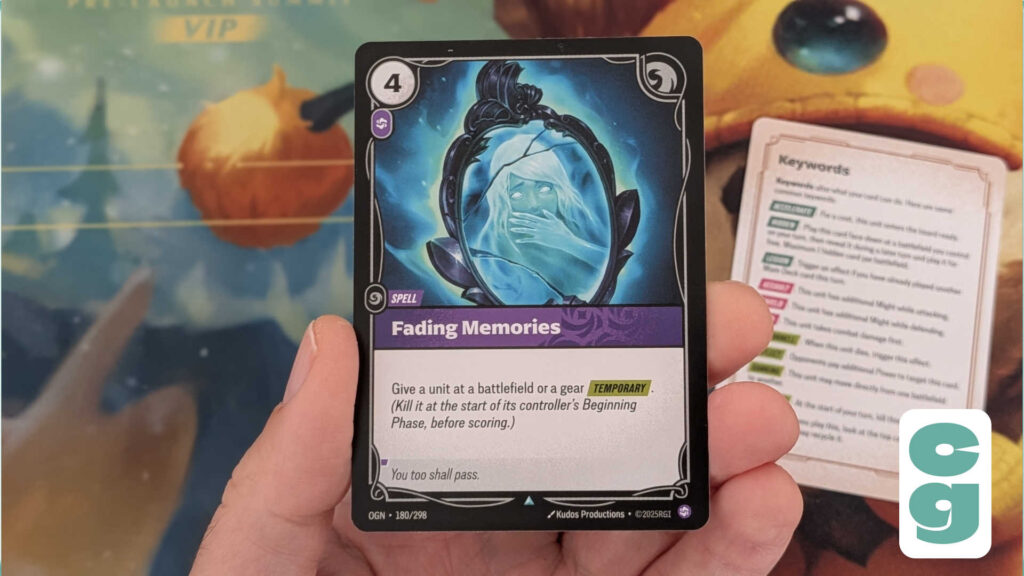
If a card has Temporary, it must be killed before scoring at the start of its controller’s next Beginning Phase. Note that if another player controls it other than the owner of the card, it doesn’t remove the Temporary keyword; the rules of the keyword are specifically written that it’s at the start of its controller’s next Beginning Phase that the card is killed, not its owner.
Vision

Cards with Vision trigger when they’re played; they allow you to look at the top card of your main deck, and recycle it if you choose to. So that means looking at the card, and if you choose to recycle it, it goes onto the bottom of your main deck. If not, it remains face down at the top of your deck. Multiple cards with Vision will trigger separately, but if you don’t recycle the top card when your first Vision triggers, you will still only be able to view the same, top card of the deck when you trigger the next Vision keyword.
So there you have it; all of the keywords in the Origins set for Riftbound. Check out our full gallery of cards in Riftbound: Origins, and for more assistance with your first steps with Riftbound, take a look at our getting started guide!


